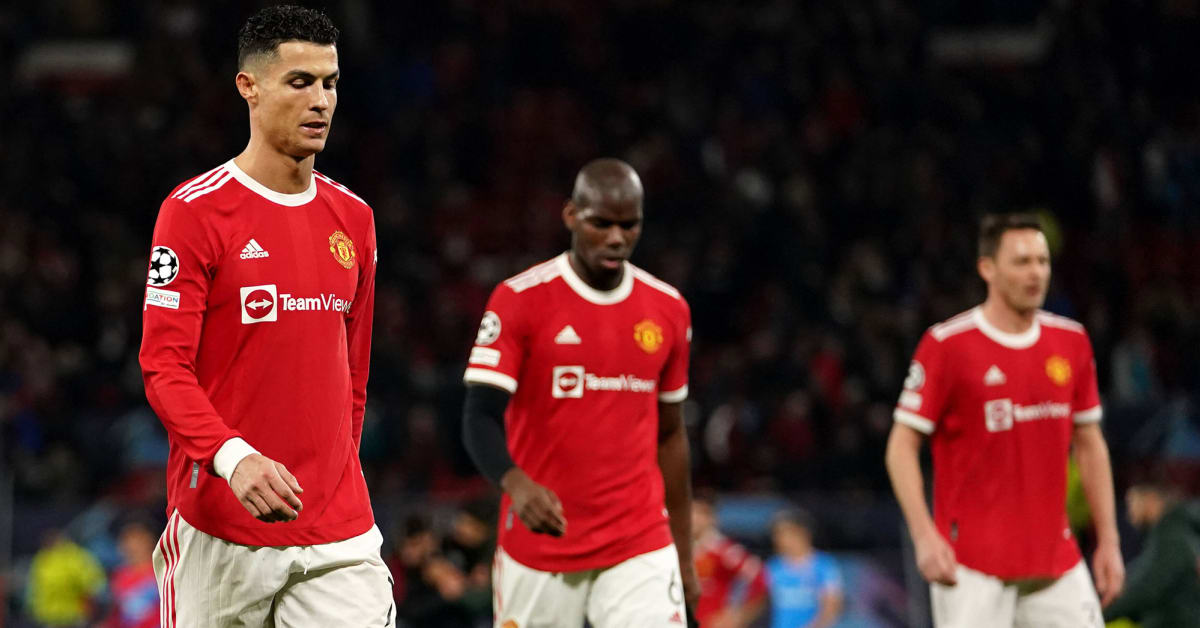Man United’s Champions League Exit Is Emblematic of Its Season
Eventually, the miracles run out. Manchester United had gotten through the group stage of the Champions League, almost entirely fueled by late Cristiano Ronaldo goals, but they could only ever carry this side so far. United went out of the Champions League having been undone, as so many have been, by the greater smartness and drive of Atlético Madrid. Renan Lodi’s 41st-minute goal was the difference in a 1–0 win at Old Trafford, which carried the Spanish side through to the quarterfinals on a 2–1 aggregate victory. It joins Benfica—a 1–0 winner at Ajax Tuesday—Bayern Munich, Liverpool, Manchester City and Real Madrid among the final eight teams in the competition.
For the first 20 minutes Tuesday and isolated spells late on, United had the look of joining them instead. The hosts applied pressure, and Jan Oblak made vital saves on chances from Anthony Elanga (with his head) and Raphaël Varane (in more orthodox fashion) but this was a familiar picture. United was good in some parts, bad in others and prone to making self-defeating errors.
United’s form under interim manager Ralf Rangnick has been unimpressive. Although it had lost only two of 20 games before Tuesday, performances had been wildly inconsistent, even within the same match. There was the FA Cup exit to Middlesbrough, disappointing draws against Newcastle, Burnley, Southampton and Watford, the home defeat to Wolves and the humbling away loss at Manchester City. But there were also occasional glimpses of something steelier, as in the 4–2 win at Leeds and then Saturday’s 3–2 victory over Tottenham, in both of which United faced a team that had gotten back into the game and was able to regain the lead.
The Tottenham game was a classic example of the Ronaldo paradox. He scored a brilliant hat trick, and so was responsible in that sense for three points. Yet Tottenham was probably the better side, playing more coherent football before being undone by Ronaldo’s brilliance and by its own defensive errors. Not for the first time this season, United lost the processes but won the individual moments.
That was true before Ronaldo arrived. Ole Gunnar Solskjaer’s best games as manager came when he set the team up to defend deep and struck on the break. But that was possible only with a mobile forward line, and when Ronaldo plays, there inevitably will not be the same degree of mobility. And so this season, more even than before, United has been reliant on one of its brilliant players doing something brilliant.
Sacking Solskjaer hasn’t really helped with the wider issues. By the end, morale was so bad he probably had to go. No team can sustain the sort of beatings United suffered at home to Liverpool and Manchester City, in between leaking four at Leicester and Watford. Since the retirement of Alex Ferguson in 2013, United has tended to take action against managers only in relation to finishing in—or out of—the top four. Qualifying for next season’s Champions League had clearly come to look implausible in the light of the run of five defeats in seven league games that culminated in that 4–1 loss at Watford. So to arrest the slide, sacking him was probably the right decision.
The problem was rather in what followed. Over the past decade Ralf Rangnick has proved himself an excellent sporting director. He occupies a vital place in the history of tactical development as the pioneer of pressing in German football. But he has spent only one of the past 11 years as a front-line coach.
Even that was not an unsurmountable problem, but he has been undermined by his interim status. His vision of the game is at odds with this squad. It’s been suggested that only two of the squad are familiar with the basics of the sort of ball-oriented pressing Rangnick favors. And why would players who have never been asked to play that system instinctively understand it? Perhaps they can learn, but it’s hardly surprising if some players, reasoning that Rangnick will have disappeared into an ill-defined consultancy role by the summer, wonder if there is any point.
Tuesday, the problems were of a team ill at ease with itself. Harry Maguire has been in rotten form recently; here he had seemingly been deputized to follow Antoine Griezmann, which, with Varane dealing with João Félix, left space that Koke kept driving into. That was what dragged Diogo Dalot inside for the opening goal, as he neglected Renan Lodi, who headed in Griezmann’s cross to cap a rapid break. Atlético’s wingbacks, meanwhile, just as they had in the first leg, posed a threat every time they ventured forward.
That was far less often here, as Atlético adopted an old-school approach, sitting deep and countering, breaking up the game once it had taken the lead. Better sides than United have struggled to deal with that. By the end, United was reduced to lumping balls thoughtlessly into the box, where Stefan Savić and José Giménez gleefully headed clear. The defeat can’t be said to a surprise, but it does end any lingering thought there might have been a trophy to salvage another miserable season for United—and that’s unlikely to be good news for Rangnick’s continued influence at the club.
More Soccer Coverage:








